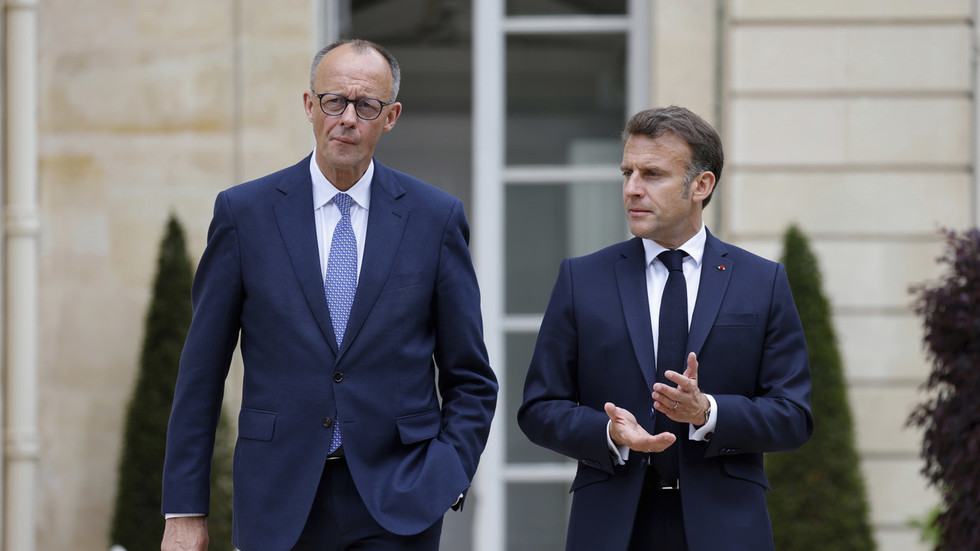Hezbollah "will not let anyone disarm" it, the Lebanese group's leader Naim Qassem said Friday, as Washington presses Beirut to compel the Iran-backed movement to hand over its weapons.
Earlier in the day, Lebanon's health ministry said Israeli air strikes killed two people in southern Lebanon, with Israel announcing attacks in the same areas targeting Hezbollah militants.
An Israeli attack on "a car on the Sidon-Ghaziyeh road resulted in one dead", a Lebanese health ministry statement said on the fourth straight day of Israeli attacks in the south.
Hours later, the ministry said another Israeli strike on a vehicle around Aita al-Shaab had also killed one.
Israel's military said it had "conducted a precise strike in the area of Sidon and eliminated the Hezbollah terrorist Muhammad Jaafar Mannah Asaad Abdallah".
It said Abdallah was "responsible, among other things, for the deployment of Hezbollah's communication systems throughout Lebanon".
To display this content from YouTube, you must enable advertisement tracking and audience measurement.
One of your browser extensions seems to be blocking the video player from loading. To watch this content, you may need to disable it on this site.

02:10
On Friday evening, it announced "a Hezbollah terrorist was struck and eliminated by the IDF (military) in the area of" Aita al-Shaab.
At the scene of the strike, members of the security forces stood guard as a crowd gathered to look at the charred remains of the vehicle after firefighters had put out the blaze.
Hezbollah, long a dominant force in Lebanese politics, was left weakened by more than a year of hostilities with Israel sparked by the Gaza war, including an Israeli ground incursion and two months of heavy bombardment that decimated the group's leadership.
The fighting was largely brought to an end by a November ceasefire, but not before the group's longtime leader and Qassem's predecessor Hassan Nasrallah was killed in an Israeli air strike.
"We will not let anyone disarm Hezbollah or disarm the resistance" against Israel, Qassem said in remarks on a Hezbollah-affiliated TV channel.
"We must cut this idea of disarmament from the dictionary."
Read moreHamas rejects Israel's latest ceasefire proposal, calls for comprehensive deal
Lebanese President Joseph Aoun said this week that he wanted "to make 2025 the year of restricting arms to the state", adding he hoped to achieve that objective through "dialogue" with Hezbollah.
Qassem said his group was ready for dialogue on a "defence strategy", "but not under the pressure of occupation" by Israel.
"Israel must withdraw (from south Lebanon) and cease its aggression, and the Lebanese state must begin the process of reconstruction," he added.
His comments came hours after another Hezbollah official said the group refused to discuss handing over its weapons until Israel withdrew completely from south Lebanon.
"It is not a question of disarming," Wafic Safa said in an interview with Hezbollah's Al-Nur radio station.
Safa, believed by experts to belong to the movement's most radical faction, said Hezbollah had conveyed its position to Aoun.
Read moreIsraeli army faces growing dissent: ‘I will never again serve under this government’
In his interview, Safa asked: "Wouldn't it be logical for Israel to first withdraw, then release the prisoners, then cease its aggression ... and then we discuss a defensive strategy?
"The defensive strategy is about thinking about how to protect Lebanon, not preparing for the party to hand over its weapons."
Analysts have said that the once unthinkable idea of Hezbollah disarming may no longer be so, and may even be inevitable.
'Problem is Israel'
Under the November ceasefire, Israel was meant to withdraw all of its forces from south Lebanon.
But despite the deal, its troops have remained at five south Lebanon positions that they deem "strategic".
Israel has also continued to carry out near-daily strikes against Lebanon – including on Friday – saying it is targeting members of Hezbollah.
Under the truce, Hezbollah was to pull its fighters back north of Lebanon's Litani River and dismantle any remaining military infrastructure in the south.
Lebanon's army has been deploying in the south as Israeli forces pulled back.
Read moreFive decades after Lebanon's civil war, battle-scarred buildings reflect ongoing trauma
Hezbollah says the ceasefire does not apply to the rest of Lebanon, despite being based on UN Security Council Resolution 1701, which calls for the disarmament of non-state groups.
Hezbollah was the only group to keep its weapons after Lebanon's 15-year civil war ended in 1990, saying that they were for "resistance" against Israel, which continued to occupy the south until 2000.
US special envoy for the Middle East Morgan Ortagus, who visited Beirut this month, said Washington continued to press Beirut "to fully fulfil the cessation of hostilities, and that includes disarming Hezbollah and all militias".
In his remarks on Friday, Qassem said Hezbollah rejected "American control over Lebanon".
Safa said that both Hezbollah and the Lebanese army were respecting the terms of the truce.
"The problem is Israel, which has not done so," he said.
On Saturday, a source close to Hezbollah told AFP that the group had ceded to the Lebanese army around 190 of its 265 military positions south of the Litani.
(FRANCE 24 with AFP)











 English (US) ·
English (US) ·